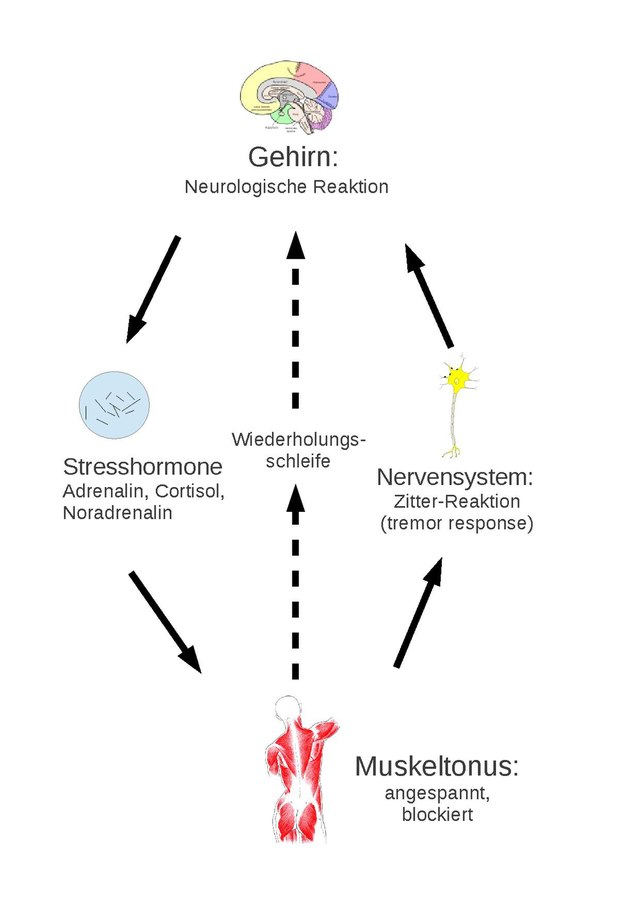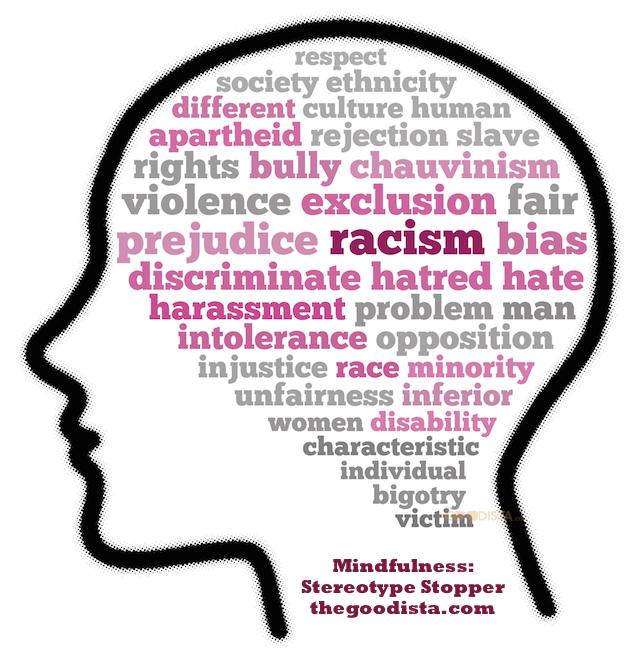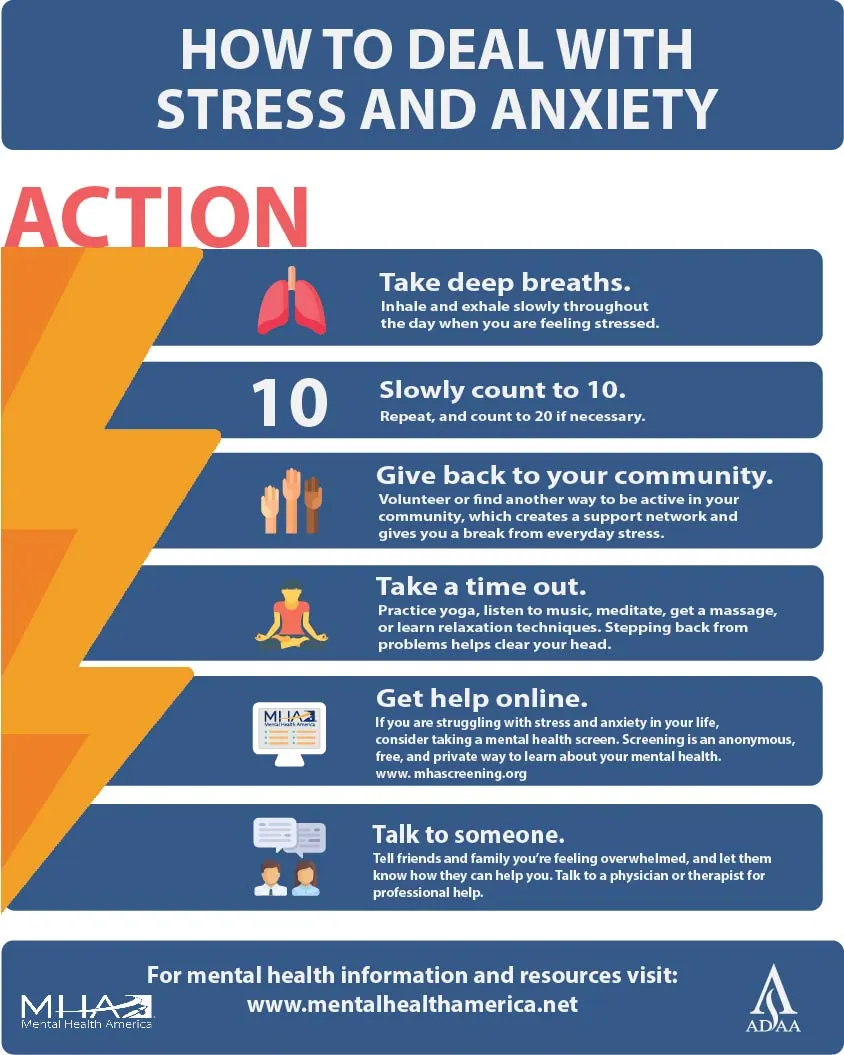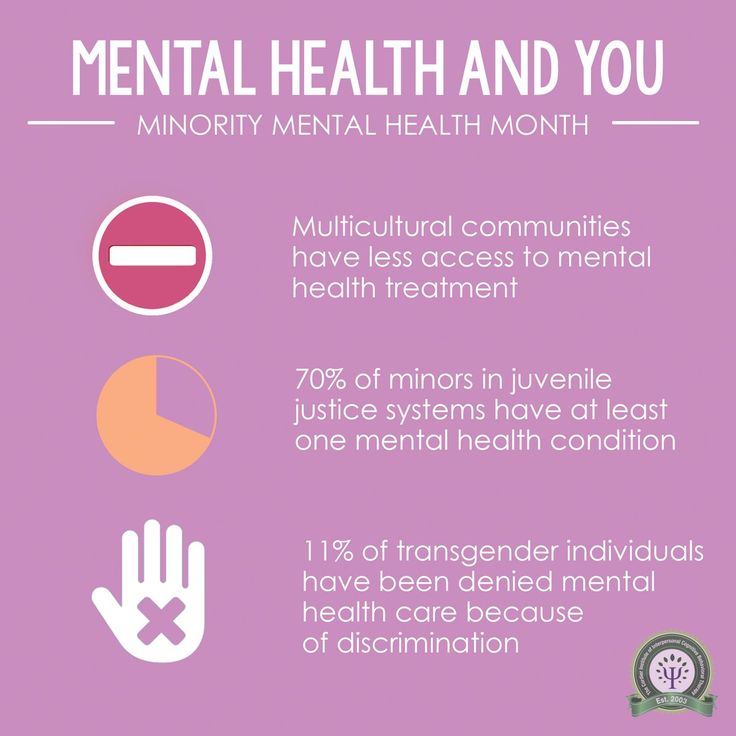Single mom burnout
Single Mom Burnout: 10 Ways to Conquer Single Parenting Stress
Sharing is caring!
- Share
- Tweet
Last Updated on March 19, 2023 by Rebecca Lake
Raise your hand if you’ve ever struggled with burnout as a single mom?
Single mom burnout is real and odds are you’ve experienced it as a single parent, even if you don’t know exactly what to call it.
Burnout is defined as a “physical or mental collapse caused by overwork or stress”. Sound familiar?
Single mom burnout is hard to avoid because overwork and stress are the norm much of the time. You’re trying to care for children, pay the bills and keep up with other day-to-day responsibilities and you may be doing it all with no help of any kind.
Knowing how to spot the signs of single mom burnout — and how to cope with it — can keep it from getting the best of you.
What Does Single Mom Burnout Look Like?
What You'll Learn
If you don’t recognize the signs of burnout, it’s easy to think that you’re not affected by it. But there are some telltale clues that burnout is setting in.
Clue #1: You’re exhausted
Constant fatigue is a major giveaway that you’re burned out as a single mom.
You fall asleep the second your head hits the pillow, get a decent night’s sleep but still wake up exhausted. It feels like you’re always in a fog and all you can think about is when you can go back to bed.
That’s burnout. It’s your body and mind trying to keep up as you grind your way through each day.
Clue #2: Sleeping is a struggle
Terrible sleep quality is another single mom burnout clue.
For example, you might go to bed feeling completely worn out but then your brain clicks on and starts going a mile a minute. You start thinking about all the things you have to do the next day, or all the things you didn’t get done today and boom–you’re wide awake.
Or else, you fall asleep but you toss and turn or your sleep is sidetracked by crazy dreams.
Stress dreams can be a hint that you’re trying to do to much as a single mom. And if you’re not able to fall asleep, you could have burnout-induced insomnia.
And if you’re not able to fall asleep, you could have burnout-induced insomnia.
Clue #3: You’re always cranky
Not getting enough sleep makes you grouchy. Even when you’re getting enough sleep, you can still feel like a major grump if you’re suffering from burnout-driven exhaustion.
This is one of the suckiest parts of single mom burnout.
You can easily find yourself snapping at everyone around you, kids included, and you don’t mean to do it.
But when you’re constantly tired, your fuse runs short and you end up feeling annoyed, irritated and frustrated.
Clue #4: You’re having a hard time getting anything done
Burnout is a guaranteed productivity killer.
It’s hard to nail everything you’re supposed to do at work and home when you can barely focus. You end up doing just the bare minimum to take care of yourself and the kids.
Some days, you might have a hard time even doing that.
Meanwhile, the chores start piling up around the house, your performance at work or in your business takes a huge nosedive and you feel more stressed than ever.
And you have zero mental motivation to do anything about it.
Clue #5: You have no interest in anything (besides taking a nap)
One of the side effects of single mom burnout is that self-care ends up on the back-burner.
You don’t have time to pursue hobbies anymore and even if you do, it just doesn’t interest you. Everything is just kind of blah and it’s hard to feel motivated.
One thing I want to say here: lack of interest in things you used to enjoy is also a sign of depression.
Single mom burnout and depression are two totally different things. If you’re not sure whether you’re burned out or depressed, consider talking to a counselor or therapist who can help you figure out exactly what’s going on.
Single Mom BurnoutClue #6: You feel run down or sick all the time
Too much stress can make you sick, literally.
A study from Michigan State University suggests a link between higher stress levels and health issues like asthma, irritable bowel syndrome and lupus.
If you seem to get headaches more often, you’ve got a cold you can’t shake or everything just hurts, that could be your body’s way of telling you you’re burned out.
Clue #7: You beat yourself up mentally for not being a perfect mom.
Single mom guilt is real and it’s something most moms encounter from time to time.
What is single mom guilt?
It’s that nagging voice in your head that tells you you’re doing a terrible job raising your kids.
And by the way, your house really could be cleaner and oh my god, you’re not really going to feed your kids frozen chicken nuggets, are you?
That’s the voice of mom guilt. And if it seems to be getting louder and meaner, that’s a sure sign that single mom burnout is at work.
How to Beat Single Mom Burn Out (for Good)
Being a burned-out, stressed mom is no fun.
Not for you and definitely not for your kids. But you don’t have to stay that way.
Ready to beat single mom burnout? Here’s how.
1. Know your stress triggers
The first step in fighting burnout is knowing what’s behind it.
Early on in my single mom journey, for example, my biggest stressor was money. I was always worried about how to survive financially as a single mom.
Thankfully, I was able to improve my financial situation, but maybe money is a trigger for you, too.
Think about what stresses you the most from day-to-day.
It could be your money, your job, your ex or something else. Grab a notebook and write it all down, every big (or small) thing that puts you on edge.
Now, brainstorm some possible solutions for making them less overwhelming.
You may not be able to make a huge transformation right away, but taking even one small step could cut down on stress.
2. Nail your routine
Routines. Kids love them, right? Routines are comforting because they make you feel more in control.
They’re not just for kids either. When you’re burned out, having a routine can help cut through the chaos.
When you’re burned out, having a routine can help cut through the chaos.
For example, a morning routine can help you prepare for the day ahead with less stress. And an evening routine can make it easier to unwind after a long day.
If you don’t have a morning routine or a bedtime ritual, start with those first.
It’s important to bookend your days with a plan. Then, figure out a schedule for the hours in-between so you have a road map to follow.
Beating Single Mom Burnout3. Make sleep a priority
Some people daydream about their celebrity crushes. As a burned-out single mom, you might daydream about crawling into bed and sleeping for 12 hours straight.
If you’re suffering from single mom burnout exhaustion, you’ve got to find a way to get the rest you need.
That might mean going to bed earlier, getting up later or snagging a 20-minute nap in the afternoon.
The quality of your sleep matters too.
Sleeping 8 hours sounds great unless you’re sleeping on a worn-out mattress or trying to do it with a kid jabbing their elbows into your sides. (Been there, done that.)
(Been there, done that.)
If you can’t increase your sleep time, make it as comfortable as possible.
Invest in a new mattress or treat yourself to a new pillow. Splurge on some quality sheets. Give your kid the boot to their bed or a pallet on the floor if you co-sleep.
Do whatever you have to do, but make sure that every minute of sleep you’re able to get counts.
4. Simplify your schedule and stop multitasking
Schedule overload is a fast track to burnout. It’s hard to feel energized when every day is packed with things to do.
Think about where your time goes every day, and what your kids are doing.
Look for activities that add to everyone’s stress that you could cut out.
Here’s a simple rule for scheduling if you want to avoid single mom burnout: less is more.
When you have fewer things to do or fewer places to go, you have more time to slow down.
Doing 10 things at once might make you feel more productive but the bottom line? Multitasking doesn’t work.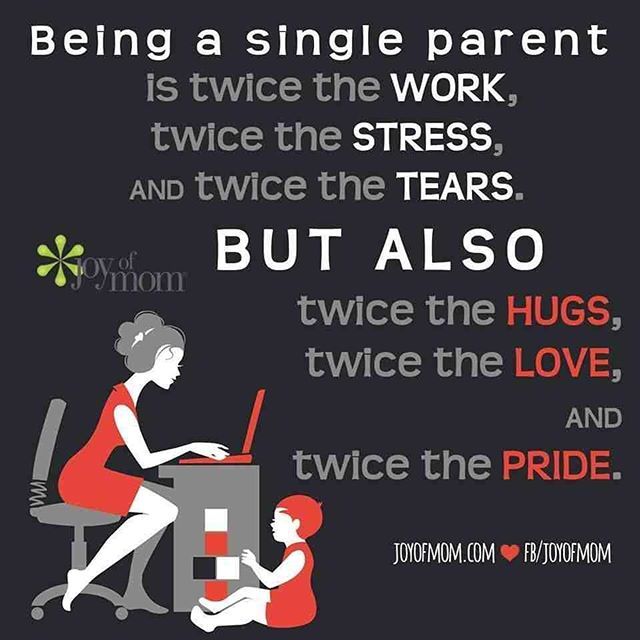
Not only does multitasking make you less effective, but it also makes you less attentive and less mindful of what you’re doing.
If you’re already burned out, realizing that you’re not really getting anything done and you’re zoned out isn’t going to help.
Instead of multitasking, work on one thing at a time and don’t stress about everything else on your to-do list.
5. Plan ahead
It’s hard to do things when you’re burned out.
Your brain gets all fuzzy and you just can’t think straight. Or worse, you start forgetting things.
Mom brain is real and it gets worse when you’re approaching burnout level. Some simple planning can help you stay on track, especially if you’re already feeling stressed.
Prep all your meals for the week so you’re not scrambling to make dinner every night. You can use a simple meal planning option like $5 Meal Plan to create weekly menus.
Pick out your clothes for the next day the night before and have your kids do the same to cut down on the morning frenzy.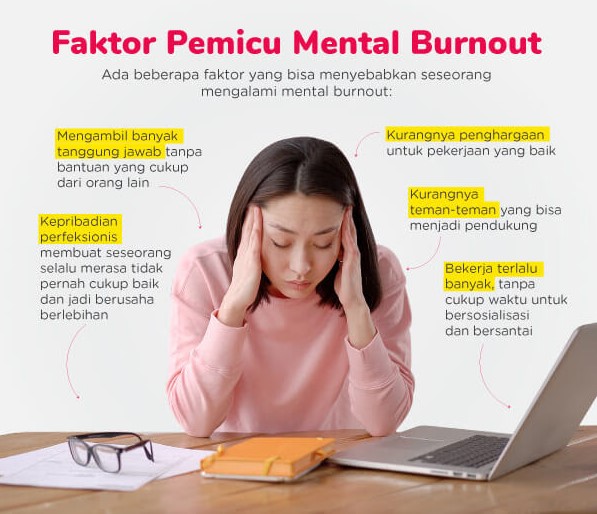
These are simple things but they can make a big difference in cutting down on stress.
Single Mom Burnout Tips6. Take care of your money
The money struggle is real for a lot of single moms.
On the list of biggest financial challenges single parents face, low income, inconsistent child support, poor credit and debt are all near the top.
Tending to your finances as a single mom is a form of self-care.
By paying attention to your money situation, you can remove a major source of anxiety in your life.
If you’re struggling with money, here are a few tips to help you get back on track:
Learn to budget
A budget is essential for getting a handle on your finances.
Your budget is your plan for spending each month. When you have a budget in place, it becomes easier to manage and track expenses, save and work toward your goals.
If you’re not sure where to start, here’s a guide to making a single mom budget.
Take Control of Your Budget!
Grab these FREE budgeting printables and get your finances on track when you join the weekly newsletter!
Pay off your debt
Debt can be a serious obstacle to building wealth as a single mother.
When you have credit card payments, student loans, car loans or other debts to manage, it’s harder to make progress with saving or investing.
If you have debt, consider what you can do to pay it down faster.
For example, you might use a 0% APR balance transfer offer to consolidate your credit cards. Or you could get a low-interest debt consolidation loan to combine and pay off debts.
The faster you can ditch your debt, the sooner you can focus on the money goals that are most important to you.
Looking for a simple money management tool? Try Empower to track spending, saving, investing and budgeting in one place!
Start saving
One of the first things I did as a newly single mom was to focus on growing my emergency fund.
An emergency fund is a savings account that you can tap into when you have unexpected expenses. It’s a backup plan for your finances so you don’t have to turn to a credit card to cover an emergency.
If you haven’t started saving yet, your future self will thank you for every penny you stash in savings.
Opening a high-yield savings account can be a good place to start. A high yield account from an online bank like UFB Direct can pay a stellar interest rate with minimal fees.
Once you get into the habit of saving, you can branch out to add investing into the mix.
If you’re looking for a simple way to invest, Acorns is worth a try. The Acorns app rounds up your spare change and invests it for you to help you build wealth in small increments.
Grow your income
Making more money is one of the best ways to improve your financial situation as a single mom and reduce burnout.
When you have more money coming in that can help you combat financial stress.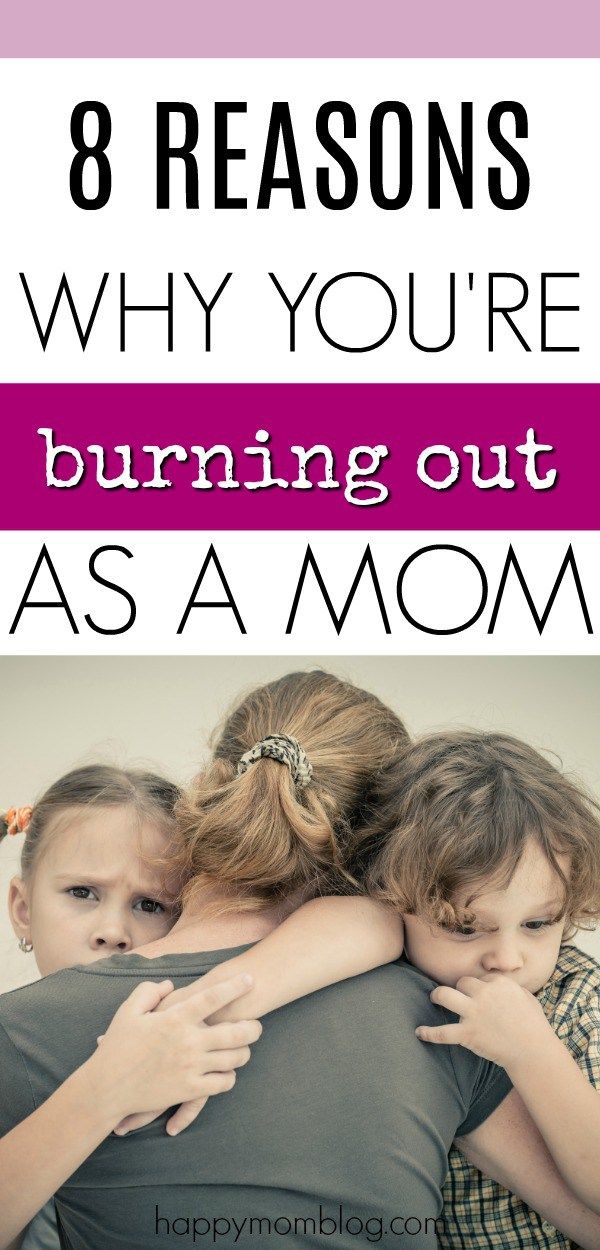 And if you’re not worried about money all the time, that can help you be a relaxed, happier mom.
And if you’re not worried about money all the time, that can help you be a relaxed, happier mom.
Starting a single mom side hustle or two can give your income a boost. You could also try negotiating a raise at your current job or taking on more hours if you get paid hourly.
7. Take care of your health
Good health is so important as a single mom.
Because you know what happens when you get sick, right? The entire world comes screeching to a halt.
If you have friends or family nearby who can help you out, it’s not so bad. But if you don’t, then being sick is something you just don’t have time for.
So, you have to stay on top of your health. That means physically, mentally and emotionally.
Here are some of my favorite ways to stay healthy as a single mom.
Exercise
I try to work out at home every day if I can because that’s my “quiet” time. If you can do the same or hit the gym, then great.
But if you can’t, then just walking around the block with the kids can make a huge difference in how you feel.
Get enough sleep
I cherish my sleep and I hate when it gets interrupted. Make sure you’re getting enough rest so you don’t feel like a total mombie in the mornings.
Eat better
Making three meals a day can be hard when you’re a busy single mom, whether you work at home or outside of it.
If you don’t have time for organic, homemade everything try to fit in at least one healthy meal a day, for yourself and your kids.
Bonus tip: Check out HealthyWage–you can get paid real money to lose weight and get healthy!
Make time for self-care
Practicing self-care matters for all moms but it’s can be tougher as a single mom if you never seem to get a break. But carving out even 5 to 10 minutes a day can give you the time you need to be kind to yourself.
You can’t take care of everyone and everything else without taking care of you first.
If you think you can’t find any time for self-care, start small.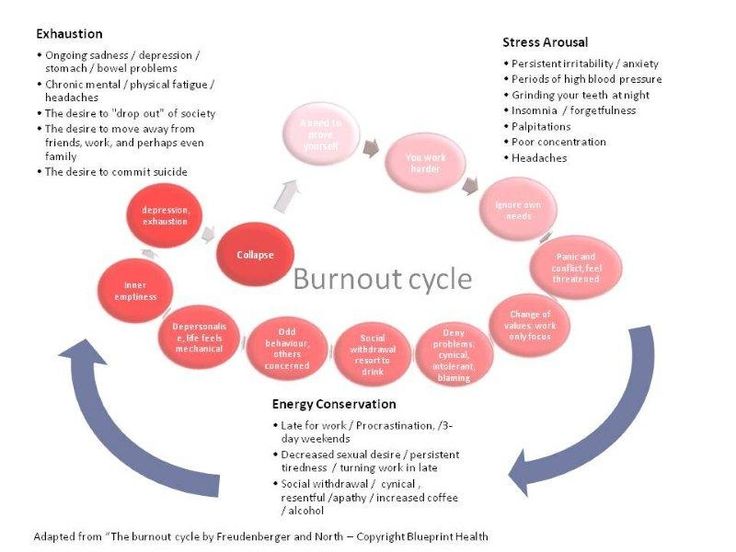 Try for 30 minutes a week at least.
Try for 30 minutes a week at least.
If you can set aside more time, great. But commit to taking that time every week to focus on yourself.
8. Say no
Being a yes woman can almost guarantee that you’ll end up with a bad case of single mom burnout.
If you frequently say yes to doing things or making commitments when you really mean no, ask yourself why.
Is it because you feel guilty if you say no? Or you’re worried about disappointing someone?
Those are valid thoughts but you have to think about what the cost is to yourself when you say yes to everything. If it just makes you feel more stressed and frazzled, permit yourself to say no, at least once in a while.
If you want to be kind to yourself and not add to your stress load, then get comfortable with saying no too.
Try taking the KonMari approach if you don’t know where to start. Say no to things, situations or people that don’t spark joy.
Saying no will make some people unhappy.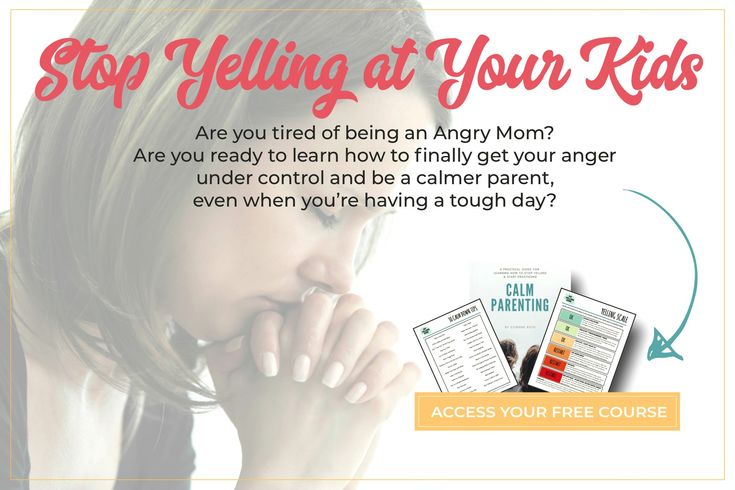 They might even try to make you feel guilty about it.
They might even try to make you feel guilty about it.
But stand your ground. Don’t let other people’s expectations dictate what you say yes or no to.
9. Skip the mom guilt
Every mom probably deals with feelings of guilt at some point or another but it can be especially strong if you’re a single mom.
Because we get judged all the time, right?
Society attaches this stigma to single moms that we just can’t seem to shake. And what’s worse is when you get judged by people you know, like your parents or mom friends.
So the last thing you need to do is add to that with your own personal guilt trip.
If you want to be kind to yourself as a single mom, you can start by accepting these truths:
- You are not a perfect mom. (But hey, NO mom is perfect.)
- It’s okay to not be perfect.
- It’s even okay to not feel great about being a mom sometimes.
- You will screw up and make mistakes as a parent.
- Your mistakes don’t define who you are or how much you love your kids.

Look, I would love to win a mom of the year award but…it’s not happening. But I’m okay with it.
And if you want to be okay with it too, you have to kick that mom guilt firmly to the curb.
10. Ask for help
Asking for help as a single mom can be hard. Every mom feels the pressure to try and be a super mom all the time.
But sometimes asking for help is the very best thing you can do to beat single mom burnout, for yourself and your kids.
If you don’t have a tribe you can call on for help, work on building one.
Connect with other moms, get friends and family to pitch in, pay someone to do a chore around the house that you can’t stand or don’t have time for.
Reach out to coworkers, your church family if you have one, your next-door neighbors. Join a single mom support group on Facebook or through a local meetup.
Bottom line, the more people you can get on your team, the better. And if you’re struggling financially, remember that assistance for single moms is out there if you need it.
Final thoughts on single mom burnout
Burnout can leave you worn out if you don’t know how to fight it. Having a strategy for managing mom life (and your money) can help you keep burnout at bay.
Need more money tips? Read these posts next:
- Spending Freeze Rules: How to Save Money Fast
- 30 Inspired Gifts for Single Moms (Thoughtful, Fun and Practical!)
- 50+ Flexible Side Hustles for Moms Who Want to Make Extra Money
- Sell Kids Clothes Near Me: Where to Sell Kids Clothes for Cash Fast!
Sharing is caring!
- Share
- Tweet
Single Mom Burnout and What You Can Do to Prevent It
I’ve been quiet for a bit. And I want to be real with you.
Single mom burnout is real. And, after talking to my group clients yesterday, I know that single moms by choice and women trying to become single moms by choice, are right there with me in this overwhelm.
I know I’m not alone in this. There are tons of single moms out there, getting their kids back to school after a summer off, getting up early to pack lunches, rushing home after work for dinner, bath, and bedtime.
And, those trying to get pregnant, are working harder to save money for a new baby, facing repeated ups and downs of trying while trying to minimize stress.
So, how did I get here? I took some time to reflect on how and why I’ve gotten to this intense burnout. And, I have some lessons to share with you, so that you, as a single mom, can avoid the place I’m at right now.
So, how did I end up in this intense burnout? Looking back it’s clear that prioritizing self-care is what led me here. So to keep from burning out like this again as a single mom) there are some lessons I want to share with you:
Single Mom Burnout: How did I get here?In short, the stress of parenting caused me to lose myself and forget about the other aspects in my life that I loved.
- I stopped prioritizing self-care.
Listen, it’s easy for me to get into the mindset where “the show must go on” no matter what happens. When I’m focused, I get laser vision. It’s part of why I ended up getting sick when I was practicing law. I can focus without breaks like nobody’s business. It’s easy for me to get to a place where I feel too busy to take breaks. It’s too easy for me to believe that what I’m working on is too urgent to allow me to stop for my self-care routines, to make healthy food, or a simple catch-up with a friend.
- I put my child’s needs above my own, forgetting that I had needs too that needed attention. I stopped paying attention to what I needed.
- I stopped exercising. I wasn’t even taking walks. Furthermore, I stopped attending my online Qigong class. Getting up from my desk became the least of my priority.
- Wasn’t eating meals–just snacking randomly
I got so frantic, that I stopped cooking and eating good healthy meals. I opted for a hunk of cheese, half an avocado, or a spoonful of hummus throughout the day, but I rarely made a meal or sat down to eat.
I opted for a hunk of cheese, half an avocado, or a spoonful of hummus throughout the day, but I rarely made a meal or sat down to eat.
- Didn’t delegate enough work
As a solopreneur, everything falls to me in my work. And, finding reliable help feels time-consuming and difficult. But I set out to complete an ambitious launch with tons of content, technical challenges, and intense stress with no help. What’s your version of this?
- Stopped connecting with friends. I’m not much of a phone talker. I really don’t like it. But with minimal contact with others during the pandemic, I didn’t shift and connect with others regularly and eventually found myself very disconnected and lonely.
- Not getting enough sleep–burning candles at both ends
Single Mom Burnout: What did I learn?
- I started to delegate as much as possible.
 This is true in both my personal life and my business. So, I hired a VA to take over the technical and menial tasks so that I can work on being creative. In my personal life, it means leaning on others who can help clean and cook. Sometimes, it can feel like a stretch financially, but freeing yourself up makes you better able to spend time on the important things.
This is true in both my personal life and my business. So, I hired a VA to take over the technical and menial tasks so that I can work on being creative. In my personal life, it means leaning on others who can help clean and cook. Sometimes, it can feel like a stretch financially, but freeing yourself up makes you better able to spend time on the important things.
- I stopped debating whether I could afford self-care. Again, this is one of my biggest pieces of advice I give to my clients. Pick something and don’t let yourself debate whether you can afford it (mentally, emotionally, financially). Just schedule it and do it without guilt or questioning.
- I exercise every day even if it means a short 20 minute walk.
- I eat 1-2 meals a day instead of endlessly snacking or missing meals all together. While I do love intermittent fasting, I need to be more disciplined and carve out time for real meals.

- I need to make time to connect regularly with friends IRL or on the phone. For me, standing dates are the best so that I can save time not trying to schedule and plan. So, for example, Saturday night date with girlfriends, or Thursday morning coffee chat with a friend.
- I commit to a bedtime no later than 10:30 and not work at night at least 3 days a week. This can even mean going to bed with my child at 8pm one night a week.
- I practice what I preach by embracing self-compassion. I let myself be burnt out and honored that I needed a rest and reset, rather than fighting with myself, feeling guilty, and breathing myself up. This is something I teach others and am getting a chance to embrace again.
- I set more boundaries about how much I can give to others. Instead of endlessly giving to my dad or my son.
 I asked for a list of things my dad wanted and told him I would get to them in time, rather than dropping everything each time he asked for something. I’ve instituted quiet time for my son, during which he needs to entertain himself and give me space.
I asked for a list of things my dad wanted and told him I would get to them in time, rather than dropping everything each time he asked for something. I’ve instituted quiet time for my son, during which he needs to entertain himself and give me space.
So, that’s where I’m at. Now that my son is back in school (YAY!!!!!), I finally feel like I can jump back in. My system is reset, and I’m ready to go. But I have a constant reminder to find balance.
Let me know how you are doing? How are you surviving the ups and downs of trying? Or the grind of raising kids alone? Have you ever felt like you can’t get off the couch?
How to save yourself from burnout for single working parents
How to save yourself from burnout for single working parents | Big Ideas 20-21: Lessons in FortitudeArticle published in Harvard Business Review Russia Brigid Schulte , Stavrula Pabst Illustration: Bernd Vogel/Getty Images
Editorial. You can read this article and other materials published in the rubric "20-21: Lessons for Fortitude" for free.
You can read this article and other materials published in the rubric "20-21: Lessons for Fortitude" for free.
Alison Griffin, senior vice president of social value consulting firm Whiteboard Advisors and single mother of two sons, knows exactly when she reached her breaking point during the pandemic and felt burned out.
Griffin understood that her company was determined to support parents and single parents like her: management welcomed the flexible approach. Griffin worked remotely from Colorado for years for a Washington-based company. During the pandemic, she was additionally paid for child care. The company also bears 100% of the medical expenses of its employees. But even with such support, the pandemic, quarantine and the closure of schools and kindergartens have made a difficult situation for single parents almost hopeless.
For months, Griffin, like many other parents of young children during the COVID-19 pandemic, got up at 5 a. m. and immersed herself in her East Coast work schedule. She cooked breakfast for the kids during teleconferences by placing her laptop on the kitchen table and putting on her headphones. She worked non-stop until about five or six o'clock in the evening - and at the same time tried to follow the children's online lessons as much as possible. She then looked in the fridge for something to eat for dinner and made hot cheese sandwiches most of the time as she didn't have time to buy groceries. Then, after putting the kids to bed, she returned to the email that threatened to fill her inbox, and only then remembered that she did not go to the post office, did not buy medicine and milk for breakfast cereal, and is too exhausted to do anything about it. to do.
m. and immersed herself in her East Coast work schedule. She cooked breakfast for the kids during teleconferences by placing her laptop on the kitchen table and putting on her headphones. She worked non-stop until about five or six o'clock in the evening - and at the same time tried to follow the children's online lessons as much as possible. She then looked in the fridge for something to eat for dinner and made hot cheese sandwiches most of the time as she didn't have time to buy groceries. Then, after putting the kids to bed, she returned to the email that threatened to fill her inbox, and only then remembered that she did not go to the post office, did not buy medicine and milk for breakfast cereal, and is too exhausted to do anything about it. to do.
Unlike those who raise children in a couple, Griffin had to cope with everything on her own.
Women, regardless of their marital status, bear the brunt of childcare and online education during the pandemic. This is partly why 2.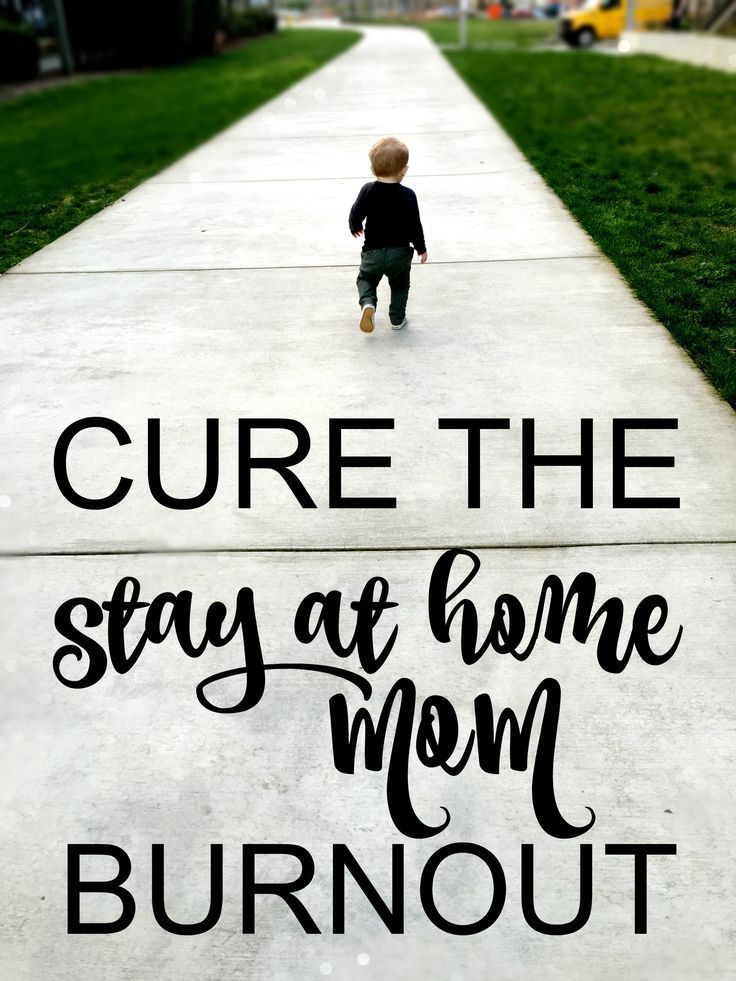 3 million women were forced to leave their jobs. The single mother Griffin did not have such an opportunity. She felt like she could barely manage on her own. The pandemic cut her off from her “support group” of friends, neighbors, relatives, kindergarten, nannies, acquaintances, school, school extracurriculars, and even her ex-husband, whom she, like many other single mothers, enlisted in day-to-day care. The stress built up for months, until one day, on her way home from a board meeting, she was caught in a wildfire traffic jam that turned into an eight-hour nightmare. The cup overflowed. She called a friend and burst into tears: "I need to be given a break."
3 million women were forced to leave their jobs. The single mother Griffin did not have such an opportunity. She felt like she could barely manage on her own. The pandemic cut her off from her “support group” of friends, neighbors, relatives, kindergarten, nannies, acquaintances, school, school extracurriculars, and even her ex-husband, whom she, like many other single mothers, enlisted in day-to-day care. The stress built up for months, until one day, on her way home from a board meeting, she was caught in a wildfire traffic jam that turned into an eight-hour nightmare. The cup overflowed. She called a friend and burst into tears: "I need to be given a break."
Griffin is not alone. While the COVID-19 pandemic has exacerbated the situation, that is not the point. Long before the pandemic, U.S. parents (regardless of marital status) had some of the highest burnout rates in the world—with severe exhaustion, negativity, and a sense of futility in trying to cope with family responsibilities. They were also already suffering from an epidemic of professional burnout, with the same signs of exhaustion, frustration, and inefficiency. A 2018 Gallup survey found that two-thirds of full-time workers experienced burnout. COVID-19 pandemic, lasting for more than a year, only exacerbated this problem, especially for mothers. A recent study found that 9.8 million working mothers—nearly 30% more than working fathers—feel burnt out at work, more often among Black, Asian, and Hispanic women.
They were also already suffering from an epidemic of professional burnout, with the same signs of exhaustion, frustration, and inefficiency. A 2018 Gallup survey found that two-thirds of full-time workers experienced burnout. COVID-19 pandemic, lasting for more than a year, only exacerbated this problem, especially for mothers. A recent study found that 9.8 million working mothers—nearly 30% more than working fathers—feel burnt out at work, more often among Black, Asian, and Hispanic women.
Single parents experience the most stress. "There is no greater stress," according to a new study on single mothers during the pandemic by Roseanne Hertz, a sociologist at Wellesley College. In her analysis, women living alone with children were more likely than mothers in multi-adult families to report that their work productivity had been reduced by childcare (from 57% to 47%). One participant, whose words reflect the opinions of others, said: “Children are the most important thing for me, but it was also necessary not to lose productivity at work. ”
”
“The pandemic has shown and reinforced how we felt before it even started,” says Paula Davis, author of Beating Burnout at Work and a single mother. Burnout can happen when you have too many job responsibilities and too few resources. Single parents have more responsibilities and potentially fewer resources. And definitely less time.
Single parents, who are the least able to afford burnout, have the hardest time.
Dr. Stephanie Lee, Senior Director of the Child Mind Institute, notes the prevalence of burnout in the communities she works with, especially among single parents. “Single parents are especially at risk due to isolation, as they need to do a lot of things every day, and there is absolutely no one to help them,” she says. The lockdown has proved especially difficult for Matthew Burke, a Philadelphia school psychologist and single father of two sons, when he lost his job and was left alone with the kids for much of the past year. “It's too much, it's really hard,” he says. “No one loves their sons more than I do. But I miss my other roles, besides the role of the father.
“No one loves their sons more than I do. But I miss my other roles, besides the role of the father.
Paula Davies, who currently chairs the Institute for Stress and Resilience and works with organizations to prevent burnout, believes that the causes of the problem lie in work systems and culture—for example, high workloads with understaffing, lack of autonomy, recognition and support, and (especially during a pandemic) lack of childcare assistance, which requires a comprehensive strategy. Yes, there needs to be more organizational and policy support for single working parents, but Davis says there are some steps you can take on your own to increase your own efficiency and at least alleviate some of the stress and pain of burnout.
Look at the big picture
Those who understand that burnout is not an individual problem or a personal failure that requires an individual solution are less likely to experience feelings of guilt or shame. Even social psychologist Christina Maslach, who developed the Burnout Inventory, recently wrote that the point of compiling this list was to push employers to “create a healthier workplace environment. ” But this proved problematic, especially in the US, where a culture of overwork dominated long before the pandemic. So Davis suggests managing burnout by checking yourself against a list of symptoms so you have a clear idea of which tasks or situations are energizing and which are draining you. In each case, ask yourself: “Does this give me strength? Am I learning something? Am I continuing to grow and develop? The idea, says Davis, is to seek out and remember positive experiences and information that can protect you from burnout and increase your resilience.
” But this proved problematic, especially in the US, where a culture of overwork dominated long before the pandemic. So Davis suggests managing burnout by checking yourself against a list of symptoms so you have a clear idea of which tasks or situations are energizing and which are draining you. In each case, ask yourself: “Does this give me strength? Am I learning something? Am I continuing to grow and develop? The idea, says Davis, is to seek out and remember positive experiences and information that can protect you from burnout and increase your resilience.
Reduce requirements and use additional resources
Recommended Reading
No Power: Five Tricks to Help You Recover Quickly
Liana Davey
Fernando Alonso: I'm Very Lucky
Emma Terchenko
How Singapore Became an Entrepreneurial Paradise
9008 110 Scott Give Up0 not giving in: how and when to agree to concessions in the negotiation process
Kian Siong Tei, Michael Scherer, Nikhil Madan, Roderick Schwab
Log in to read the full article
we advise you to read
As a startup grows, the leadership style should also change
Jeffrey Hull
The law of conservation of energy
Marina Ivanyushchenkova
Alexander Markov: Personalities are made of neurons
9001 Internet-video is better than text1 Evgenia Chernozatonskaya 9001Roger Martin
"You're a mother, pull yourself together"! Why Mother Burnout Is Really Serious
Psychology
Tatyana Ilyina, a psychologist at the Quality of Life center, who studies the phenomenon of emotional burnout in mothers and herself faced with this problem, tells why it is really difficult to be a modern mother and whether it is possible to help oneself.
“Motherhood is happiness!” - 3 years ago I repeated this phrase like a mantra, calming my crying daughter for hours at night. She was healthy, everything was in order, she just did not sleep. And I didn't sleep. It seemed that the devastating feeling of fatigue would never go away. It was comforting that I was not alone in my feelings.
Playgrounds turned out to be an excellent space for normalizing emotions. Almost all mothers spoke about very similar feelings: about the lack of sleep, about being tired from seemingly easy, but such monotonous housework. And also - about confusion in front of a flurry of information about everything in the world: about vaccinations, complementary foods, goods for the child, about "razvitashki", about clothes and shoes, about education.
Noticing that most mothers experience similar feelings, I began to study the topic in more detail. Diagnosis: emotional burnout - that's what I came to the conclusion. What it is? Why hadn't this been heard before? Let's figure it out.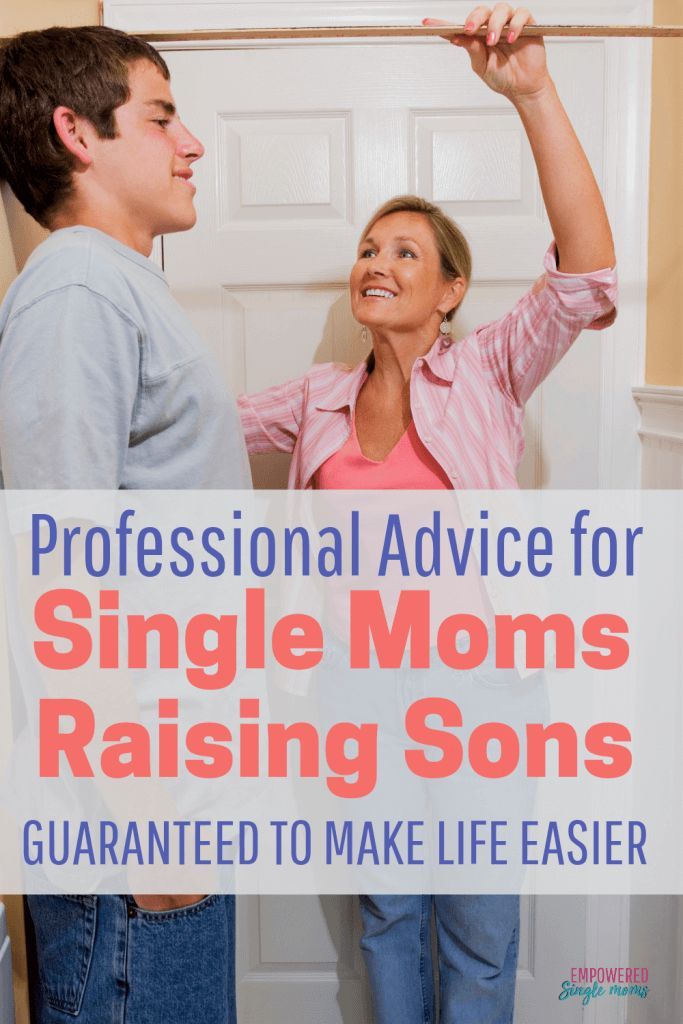
Emotional burnout is a state of extreme exhaustion that persists for a long time. If a person's activity is closely related to contacts with other people, requires constant emotional involvement and leaves no opportunity for regular quality rest, he is at risk for the development of burnout syndrome.
In the latest edition of the International Classification of Diseases (ICD-11), "burnout" is officially recognized as a disease. It also says in this document that the term can only be used in a professional environment. That is, according to this document, it is possible to burn out only at work. It turns out that a non-working woman who is on parental leave cannot burn out? Maybe. Mom is tired. Mom burns with the happiness of motherhood and burns out from fatigue, from lack of sleep, from high responsibility, from monotony, from an abundance of information. Being a mom is the most important job in the world that takes all your strength, and the reward for it is to see how children grow up.
Motherhood as a profession: what is important to know
Today, being a mother is not just giving birth (adopting) a child. The task of a modern mother is not limited to ensuring the survival of the child until the moment of gaining independence. It was normal for the generation of our great-grandmothers to have 11 children and be glad that 8 of them survived. The upbringing of children some one and a half centuries ago was reduced mainly to involving children in the activities of the whole family. A modern young mother is so immersed in a new role that her whole way of life changes: her daily routine, social contacts, and the content of her activities.
40 out of 50 mothers I interviewed at regular playgrounds in St. Petersburg stopped working after having a baby. Their main occupation at the time of the survey was motherhood. Yes, they do not work in the traditional sense of the word. But they all chuckle bitterly when someone reminds them that they are actually on maternity leave.
“Earlier they gave birth in the field”, “in the old days and 10 children each did not complain”, “earlier they washed with their hands, and cooked in the oven, and maintained a garden - and nothing that makes you tired there”, “ you are young and strong, you have a normal healthy child – what are you complaining about?” - this is only a small part of the offensive phrases that depreciate the feelings of the mother. Unfortunately, from just a reminder of how hard life was for past generations and how lucky the current one is, mom’s feeling of fatigue does not disappear. Fatigue remains, and feelings of guilt and inferiority are added to it. The increase in the level of emotional burnout of the mother has a number of reasons.
Society has become more child-centric
The modern model of motherhood is different in that being a mother means devoting one's activities to caring for a child every day and without interruption. Never before has so much attention been paid to the topic of childhood. Mom is expected to know everything about the child in the world, to carefully think through everything to the smallest detail (starting with a pacifier and ending with treatment methods and approaches to education). Now you won’t be able to raise a child the way mom tells you: it’s important to have your own opinion about all aspects of parenting. It is very easy to get confused in the flow of information and difficult to find landmarks. Mom gets tired because every day she has to make decisions on dozens of various issues.
Mom is expected to know everything about the child in the world, to carefully think through everything to the smallest detail (starting with a pacifier and ending with treatment methods and approaches to education). Now you won’t be able to raise a child the way mom tells you: it’s important to have your own opinion about all aspects of parenting. It is very easy to get confused in the flow of information and difficult to find landmarks. Mom gets tired because every day she has to make decisions on dozens of various issues.
Personal crisis due to the narrowing of the social role
In the pre-Soviet era, the entire life path of a woman was reduced to a successful marriage and the birth of children. A modern woman is a full member of society. Yes, gender stereotypes persist, but no one will forbid a woman to study, will not limit her in her search for ways of self-realization. By the time of the onset of motherhood, she already has an idea of the variety of options for a life scenario. Once in the role of a mother (when every hour of every day is devoted to caring for a child!) A woman often compares herself to childless acquaintances who develop careers, make new acquaintances, learn new things and go to the movies with friends. From such comparisons against the background of objective physical fatigue, a personality crisis can develop: “Is this exactly what I wanted?”
Once in the role of a mother (when every hour of every day is devoted to caring for a child!) A woman often compares herself to childless acquaintances who develop careers, make new acquaintances, learn new things and go to the movies with friends. From such comparisons against the background of objective physical fatigue, a personality crisis can develop: “Is this exactly what I wanted?”
Daily stress and uncertainty
Raising a child is a constant state of uncertainty. You never know what little thing will become a source of tears for the baby. You can plan tomorrow to the smallest detail, and when it comes, you can detect the child's temperature. While the child is still very young, it is not easy for many to even predict the time and duration of their own sleep, because it depends on the baby, who can give his mother a sleepless night. Stressful situations in motherhood are inevitable. The question is how to deal with them. What will you do if things don't go according to plan? How will you react if the child does something? What if your favorite things are ruined? If after a sleepless night comes a day full of whims? Mom's behavior in a stressful situation determines the likelihood of emotional burnout.
Why constant stress makes us selfish and prevents us from thinking sensibly
Ambiguous distribution of responsibilities in the family
The generation of current parents saw how responsibility was distributed in their family: mother keeps order, cooks, takes care of children. And dad is very tired at work, so he mostly rests at home. Mom, of course, also works, but she is also a mother, so she does not get tired. The distribution of responsibilities in the family was not always so categorical, but with children's eyes it was seen that way. Having matured, we form our attitude to this distribution. Someone has reconciled and broadcasts it in his family. Someone has found a way to be more flexible. And for some, these stereotypes cause a sharp rejection. Those mothers who categorically disagree with the traditional distribution of responsibilities in the family, but do not know how to fix it, burn out much more strongly.
Lack of help from loved ones
Being in contact with another person 24/7 and in a confined space is a serious test. Even if this other is the most beloved and long-awaited, a person needs the opportunity to be alone with himself. But if the mother has no one to transfer care of the child, this opportunity is lost. And the longer the contact lasts between breaks, the more exhausting it becomes for mom. In any job there are days off and holidays. They are not in the mother's profession, so the help of loved ones (or lack of it) is of particular importance.
Even if this other is the most beloved and long-awaited, a person needs the opportunity to be alone with himself. But if the mother has no one to transfer care of the child, this opportunity is lost. And the longer the contact lasts between breaks, the more exhausting it becomes for mom. In any job there are days off and holidays. They are not in the mother's profession, so the help of loved ones (or lack of it) is of particular importance.
Lack of personal time
We asked mothers: “Do you currently have a permanent occupation that is not related to taking care of children (hobbies, studies, work, sports)”. 55% of the surveyed mothers with a high level of emotional burnout answered negatively. They do not find time for hobbies, sports, study or work. This situation deprives a woman of a sense of integrity, makes her yearn even more for the opportunity to do what she was interested in before.
What to do?
First of all, restore the resource. While the mother is objectively physically exhausted, it is difficult to talk about awareness and deeper changes in the family way of life.
Mothers of toddlers are usually the most vulnerable to lack of sleep and physical fatigue. At this age, the sleep pattern is still being established in children, the child wakes up at night and can be capricious during the day, not being able to explain in words what worries him. But mother's sleep is a guarantee of her well-being and mood, without them it is very difficult to take good care of a child.
Find the causes of your child's poor sleep and try to eliminate them
- make sure that the baby is in good health. If the cause of the child's concern is feeling unwell, consult a pediatrician on how to alleviate the child's condition;
- check sleep conditions. No matter what they write in books, each child is individual. It is more comfortable for one to sleep in his crib in a cool place and move freely in his sleep. Another is constantly freezing and wakes himself with his hands. Any recommendations of specialists should be correlated with how your baby feels and try to provide comfortable sleeping conditions for him;
- try to reconsider the feeding regimen.
 And again: children are different. One does not sleep well because the stomach is busy digesting dinner. The other, on the contrary, will quickly wake up from hunger. Try shifting the feeding time by 15-30 minutes and see if this affects the quality of sleep;
And again: children are different. One does not sleep well because the stomach is busy digesting dinner. The other, on the contrary, will quickly wake up from hunger. Try shifting the feeding time by 15-30 minutes and see if this affects the quality of sleep; - bathing does not have to be in the evening. Some children get overexcited from water procedures and then fall asleep badly. Others spend a lot of energy and sleep better after bathing. See what works best for your little one.
Sometimes the cause of restless sleep may not be obvious, but it is definitely there - it is important to find it.
When the child's sleep is established, follow the rule: the child sleeps - the mother also sleeps
Until you get enough sleep. When emotional burnout has already become your reality, it is important to “put on an oxygen mask”: perform a minimum set of the most necessary actions, and rest the rest of the time. Give yourself a break to recuperate. Use all the possibilities: put off non-urgent matters for later, delegate what can be delegated, ask for help from your husband, girlfriends, relatives. If you have the financial ability, introduce the services of assistants into your life: cleaning, babysitting, delivery of ready-made food or groceries. Having restored the resource, you can always return to your life those things that you want.
If you have the financial ability, introduce the services of assistants into your life: cleaning, babysitting, delivery of ready-made food or groceries. Having restored the resource, you can always return to your life those things that you want.
Consider rethinking your daily routine
To get out of power saver mode smoothly, do it gradually. Make a list of tasks that you face every day. Select from the list the ones you need to complete. Spread them out over time. Make sure your to-do list is doable, realistic, and meaningful.
Gradually add to your list activities that make you happy. Include exercises with your baby in your schedule if you can’t break out to the gym. Don't skip meals - have breakfast, lunch and dinner at appropriate times to avoid eating disorders. When your sleep deficit is replenished, use your baby's sleep time for activities that are to your liking. Don't waste your child's sleep on cleaning and cooking if that doesn't make you happy. It is better to devote it to your hobby, and try to do household chores with your awake child.
